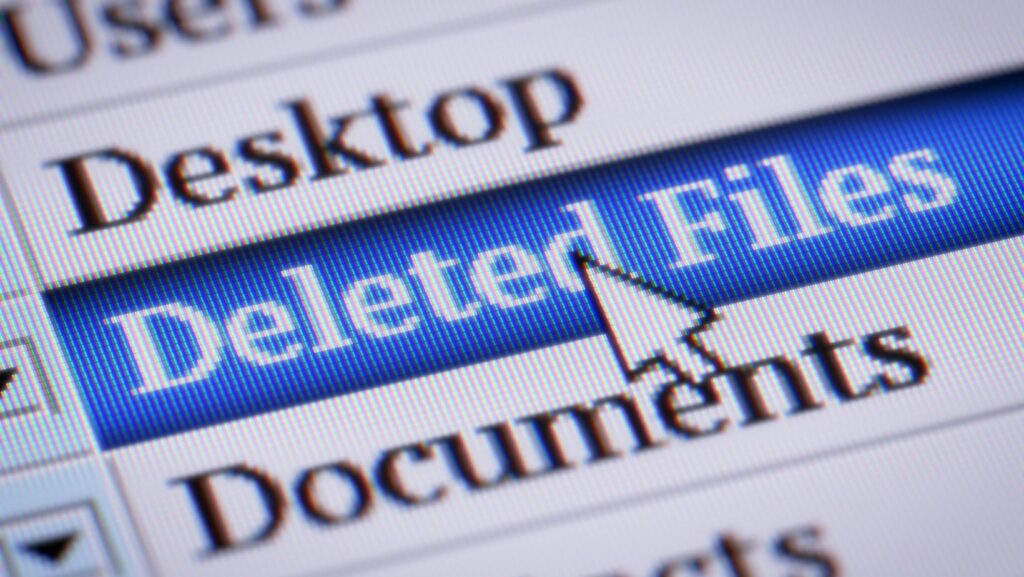A lot of people think that hitting “delete” makes a file disappear forever, but that’s not how it works. When you delete something, it’s not really gone. It’s more like putting it in a hidden drawer. The file stays on your device or server until it’s replaced by something new, like how BetAmo keeps your betting history.
What Do Data Retention Policies Do?
What happens to your data after you hit “delete” isn’t always what you think. Some companies still keep it for a while, depending on their rules. These rules are called data retention policies. They tell the company how long they can keep your information. The rules are based on laws, what’s normal in their industry, and the company’s own decisions. So even if you think your data is gone, it might still be sitting in their system for a bit.
Some companies hold onto your data for a while. For example, banks must keep transaction records for several years because of rules. Similarly, companies that store medical data have to keep patient records for a set number of years.
How long companies keep your data depends on their rules. It could be anywhere from 30 days to 10 years. Even if you delete everything, they might keep them for some time.
Legal Obligations and Data Retention
Some industries have rules that say companies must hold onto your information for a while. These laws don’t always mean the data is deleted right away. Some companies may keep the data for legal or checking purposes. Even if you delete something, it might not be fully gone. Sometimes, companies or government agencies can still access your data, especially if the law lets them.
What Happens to Your Data on Cloud Storage Services?
Cloud storage services like Google Drive or Dropbox keep your files in different places. It takes time before it’s fully gone. These services often create backups and store them on different servers worldwide. So, even if you remove a file from your device, copies might still exist on those servers for some time.
Most cloud services have rules about how long they keep backup copies of deleted files. Even after you delete something, it might stay in their system for a while. Sometimes, your data can stay on backup servers for weeks, even after you think it’s deleted.
Overwritten or Archived: What Happens to Your Deleted Data?
Even when companies try to delete your data, it doesn’t always go away completely. Sometimes, it can still be stored in places you can’t see or access. Sometimes, they overwrite the data by replacing it with random information. This makes it very hard to recover the original data.
Not all companies erase data completely. Some keep deleted data in backup storage for safekeeping.
How Long Does It Take to Fully Delete Data?
The time it takes to delete your data can vary. Some apps or services delete it quickly by overwriting files. Some systems give you a chance to recover deleted data. When you delete a file on your computer, it doesn’t really disappear right away. Even then, it’s not fully gone—it’s just marked as “okay to replace.” The system will only completely erase it when new data takes its spot.
Can You Actually Be In Control of What Happens to Your Information?
Depending on the service, your data might be kept for legal reasons or company use. Some companies may also share your data with others, making it harder to know where your information goes after deletion.
Forensic Undelete and Residual Data Traces
When you think data is gone, forensic experts can often still find traces of it. This niche area of data recovery is fascinating and a little unsettling. Deleted files leave behind “residual data traces” on storage devices. Experts with special tools can put those pieces back together.
Even when you overwrite a file (like writing over the paper), the old writing leaves faint marks. Advanced tools can “read” those marks and bring the file back, though this is rare and very expensive.
Cloud storage works the same way. Even if you delete something, the system keeps extra notes—like who created it, when, and where it was saved. Investigators can use these notes to find and recover your deleted data.
The Future of Data Deletion
People are more worried about their personal information being misused. Companies are stepping up and finding better ways to get rid of your data securely. There’s this cool thing called “zero-knowledge” encryption. With new tools and technology, getting rid of data safely is getting easier. Over time, we’ll probably see even better ways to keep your private stuff safe and make sure it’s gone when you want it deleted.




More Stories
Digital Privacy for the Gig Economy: Protecting Yourself as a Freelancer
Tap Into Fun: Evolution of Beerfest Themes in Slot Gaming
RF3TVH04R52: Revolutionizing Tech with Enhanced Security and Speed